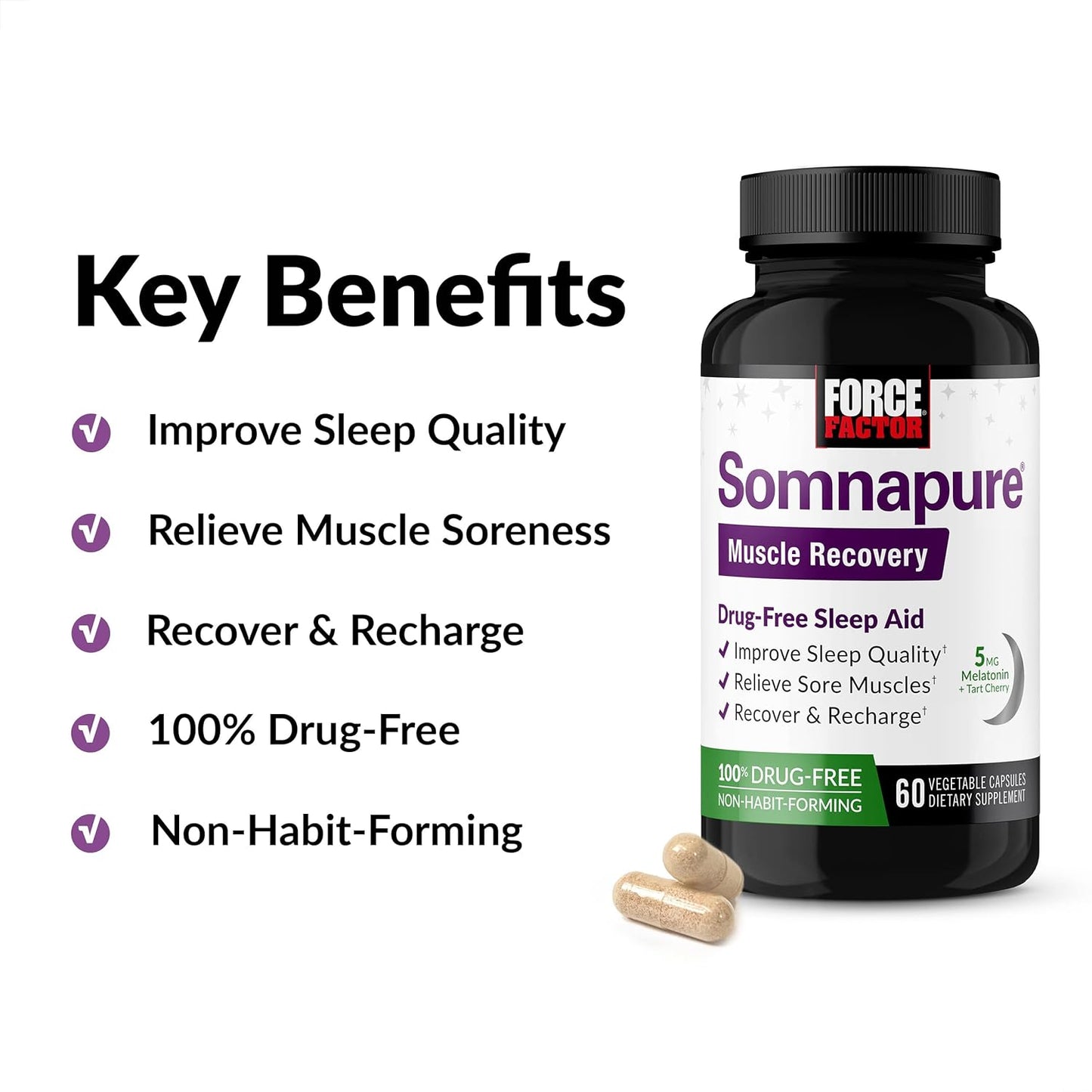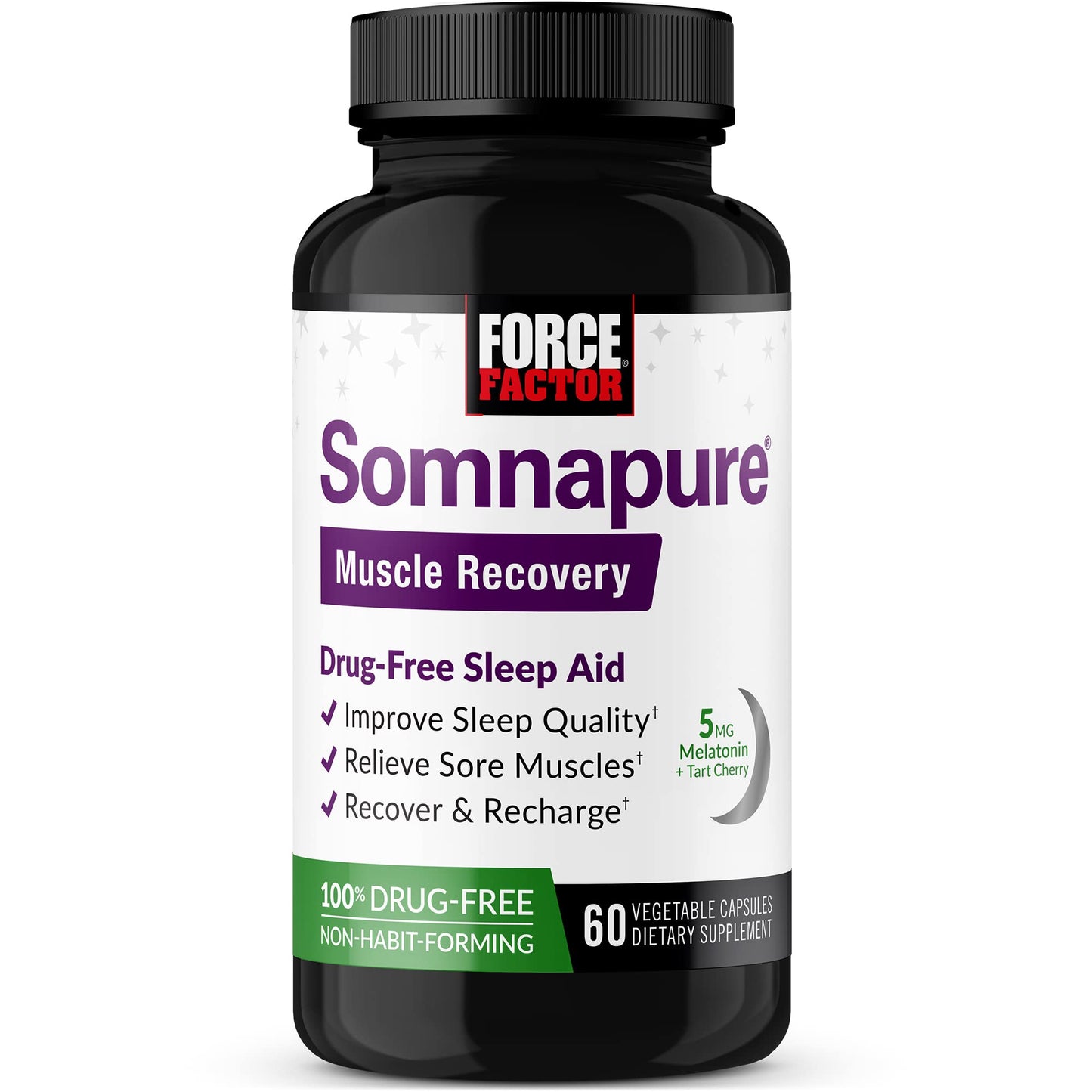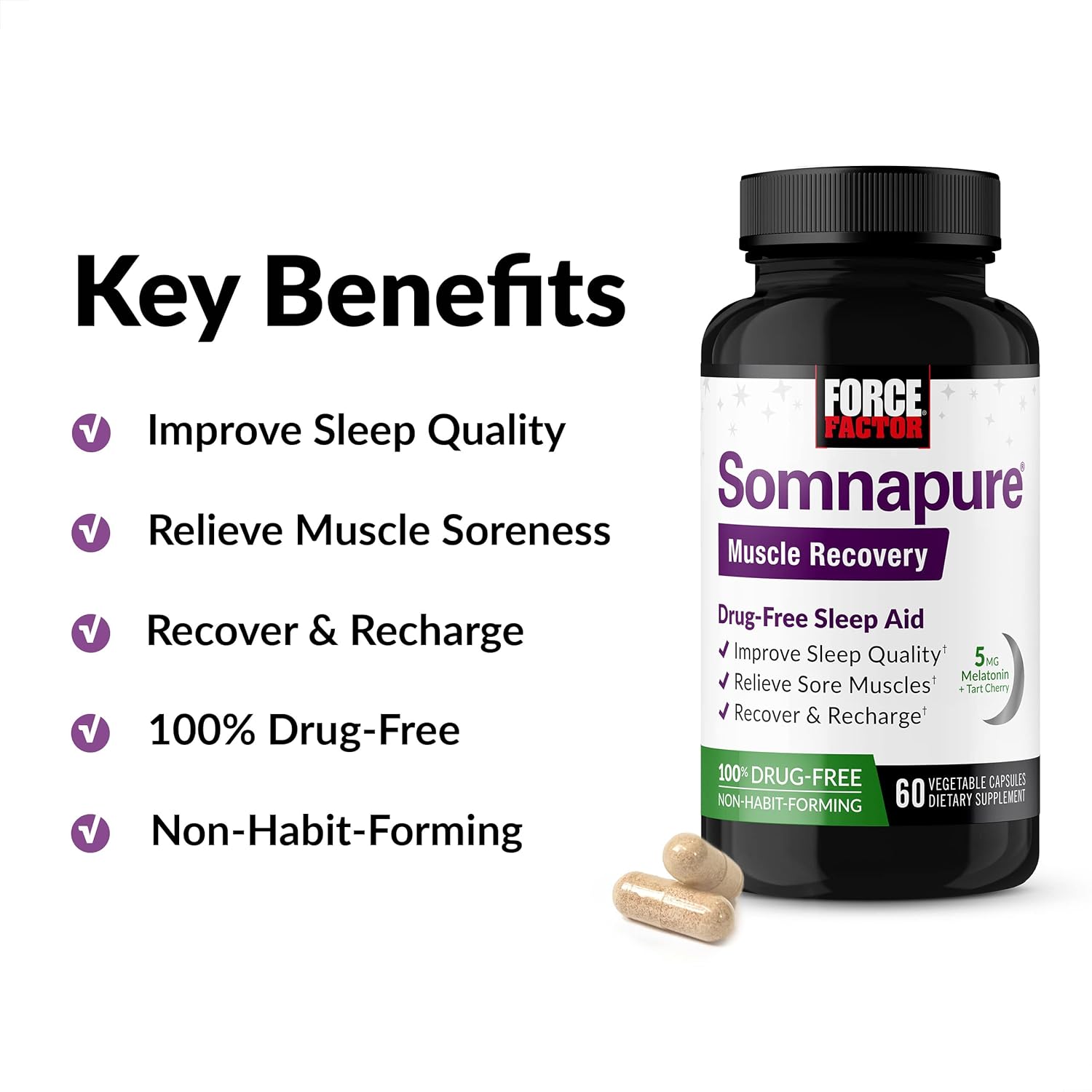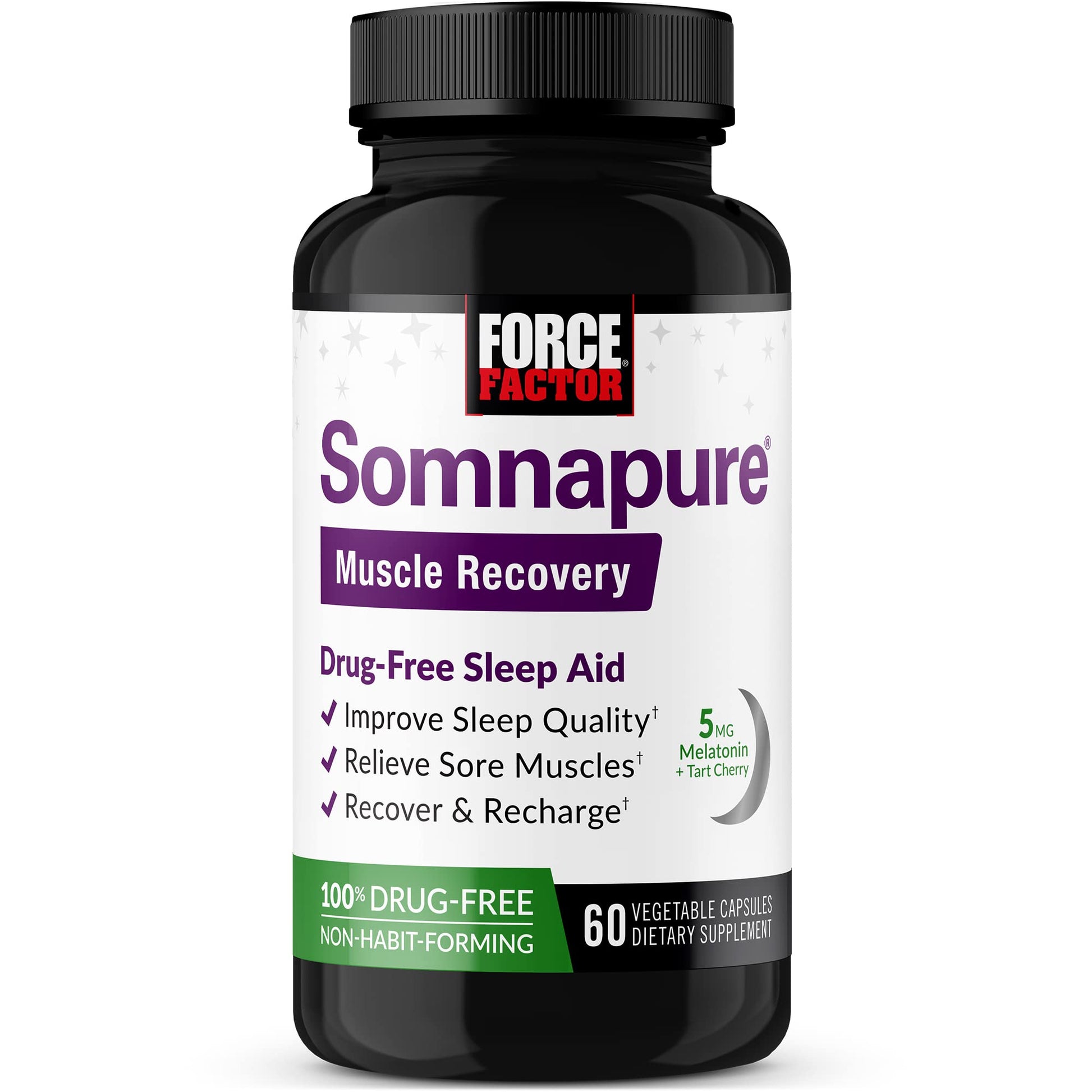

Somnapure Sleep Aid Ingredients
Calcium (92mg) - Calcium is needed to produce melatonin naturally in the body. Melatonin is the chemical that tells the body it’s time to go to sleep and as such is very important to achieving a restful night. Ensuring your body produces as much as it can naturally help you fall asleep faster. The 92mg dose featured in Somnapure should be sufficient to ensure you are not deficient and that your body is producing as much melatonin as it can.
Valerian Root Extract (500mg) - Often referred to as “nature’s valium”, valerian is a common ingredient in sleeping aids and is also often used in teas designed to help you sleep. It is thought that valerian increases the amount of gamma-aminobutyric acid (GABA) in the body. GABA is central to sleep regulation and increasing its presence in the body will make you feel sleepy. Although more research is needed to understand the precise mechanisms behind valerian’s effect on the body, studies do confirm its effectiveness as a sleep aid. Recommended doses vary from study to study, but 500mg should be sufficient to feel the effects.
Lemon Balm Leaf Extract (300mg) - Traditionally used to support brain function to alleviate depression, lemon balm leaf extract has also been linked to sleep improvements. A few studies suggest it is helpful against insomnia are restlessness, though more research is needed before these findings can be confirmed. It is likely that lemon balm assists with sleep in an indirect way by reducing stress and anxiety, though the evidence is more circumstantial than scientific at this point. In conclusion, lemon balm is not a bad ingredient to include, but we wonder if they couldn’t have chosen something more backup by scientific research that is directly associating it with sleep-related benefits.
L-Theanine (200mg) - L-theanine is a decent ingredient to find in a sleep aid and not the most common either. Found in various teas, L-theanine can reduce anxiety and induce relaxation, both of which are necessary for achieving a good night of rest. In addition, L-theanine is thought to increase GABA levels, and also levels of serotonin and dopamine, while decreasing the level of norepinephrine in the brain. The combination of these chemical alterations leads to a slowing of brain activity and reduces readiness and anxiety. No serious side effects from taking L-theanine have yet been identified and the FDA believes it is safe up to 250mg. Recommended doses range between 50 and 250mg, with the effects becoming more pronounced the higher the dosage, as is to be expected.
Hops Extract (120mg) - Barring one small study linking hops consumption to improved sleep quality in women, there is no evidence supporting the claims made regarding hops and sleep improvements. The idea that hops extract could improve sleep essentially grew out of anecdotal accounts of hops farmers falling asleep on the job. At this point, there is no known reason why hops would improve sleep. It is an odd ingredient to include considering the lack of serious scientific evidence.
Chamomile Extract (50mg) - The first thing to note is that there are two types of chamomile, one much more potent and effective than the other. Fortunately, Somnapure does state which one is included in their formula and it’s the more potent, German variety. This is where the praise must end, for while Somnapure has included the right type of chamomile extract, it is included at far too low of a dose to be really effective. Studies suggest at least 200mg for it to have any meaningful impact on sleep quality [1].
Passion Flower Extract (50mg) - Another natural calming plant, passion flower is perhaps the least researched of all the plant derivatives included in Somnapure. There isn’t a lot of research into its benefits generally, and very little linking it to sleep beyond its anti-anxiety properties. Recommended doses are normally in excess of 250mg, which means that any effects passion flower extract might have are unlikely to be experienced when you take Somnapure.
Melatonin (3mg) - As we already noted, melatonin is very important for sleep. It literally tells the body when it’s time for bed. Ingesting melatonin orally is well known to support high-quality sleep and reduce the time it takes to fall asleep. Some people can experience side effects from taking melatonin so doses are normally kept very low until tolerance has been built up. The lowest recommended effective dose is around 3mg, while the highest dose that won’t cause side effects is 10mg. This means that Somnapure is very much on the safe side of things in regards to possible side effects caused by melatonin, but it is also very much on the low side of effectiveness too. For someone experiencing very mild sleeping problems 3mg might just cut it, but for anyone with more serious trouble sleeping this dose is going to be too low.
References
https://pubmed.ncbi.nlm.nih.gov/29154054/
- Choosing a selection results in a full page refresh.
- Opens in a new window.

